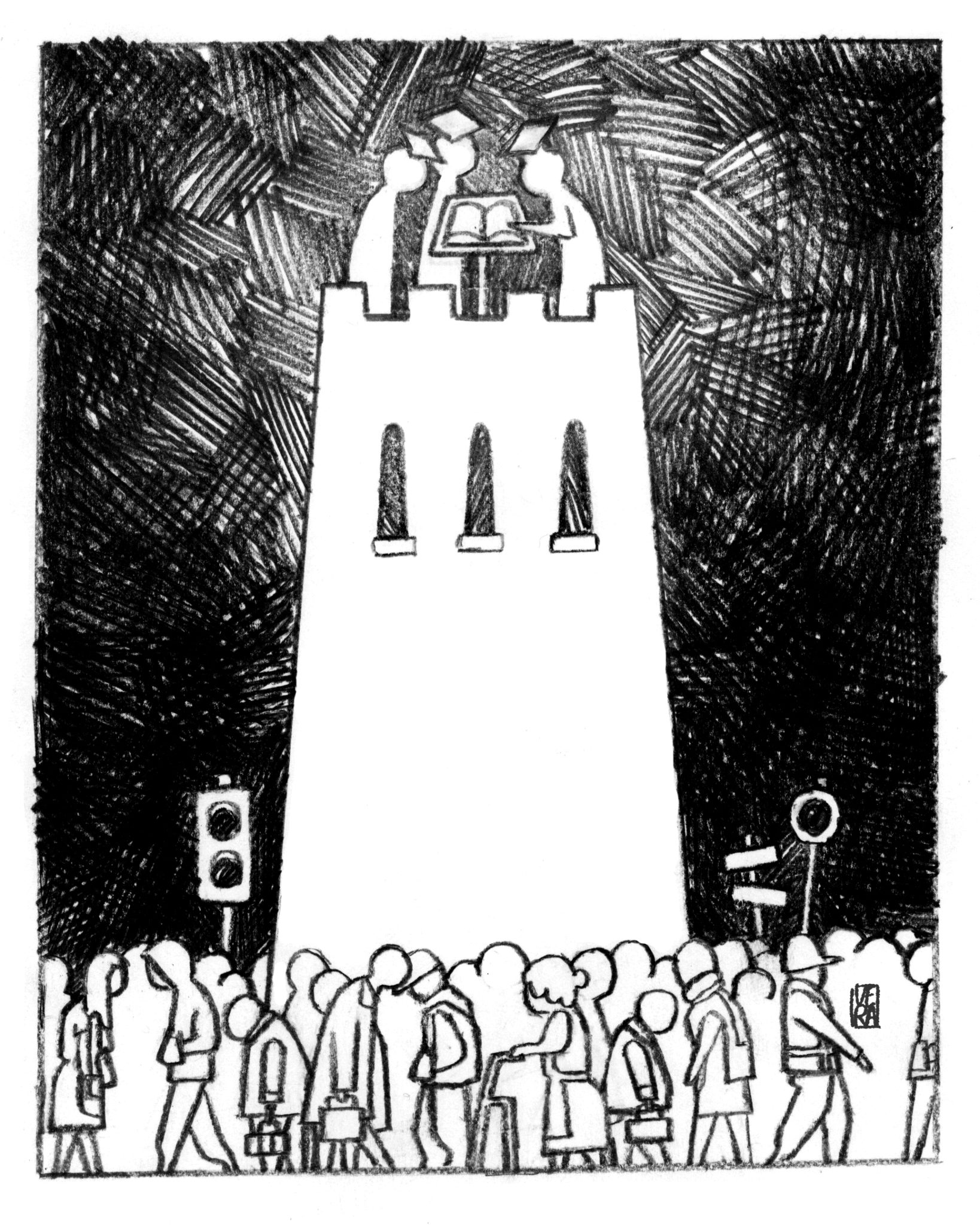
Vera Villanueva
The most important lessons I’ve learned have not come from the aimless ramblings of seminar discussions or even the sharp insights of good lecturers. Rather, they’ve come from spending time with other people. I am constantly conscious of the long hours my parents work and daily sacrifices they make in order to make ends meet. Last December, as a friend’s father drove me from their home in rural France to the train station, I felt powerless as he spoke about how his wife worked twelve hour days as he tried to find a job, how the stress caused him insomnia and depression. A few weeks ago, I read a series of honest personal essays written by girls whose lives were uprooted by conflict and violence who clandestinely pursued education against their parents’ wishes.
Across the years, this constellation of the everyday has shaped my understanding of reality and my approach to the complicated and messy thing that is life. It is also these daily details, the vivid color and emotion of these experiences, that are left outside the door at Yale.
Last semester, for example, I listened to a guest speaker share his experience pursuing a policy that allowed millions of households to fall into poverty. At the end of the day, he noted, the benefits largely outweighed the costs. While I understood the decision calculus from a purely theoretical perspective, I couldn’t help but think about the people who were unfortunately deemed as expendable. I wondered whether that utilitarian decision would have been pursued if the decision-makers had to watch, see and experience the loss of each of those families. However, what shook me more was that no one else in the audience had seemed to question the sometimes-there-are-hard-choices rationale and that no one seemed particularly bothered by the simple scale employed.
On the other end of the spectrum, however, even leftist anti-institutionalists succumb to the same faults. Individual will and agency often seem erased by a laser focus on systemic problems. Any seminar discussion or common room conversation surrounding class inevitably descends into an analysis of -isms, where big, colorful words like “epistemology” and “Marxist dialectics” and the all-encompassing answer of “Capitalism!” often paint over what people who do lack access to capital even want. It always strikes me as ironic when students use inaccessible rhetoric to define a condition many of them have never known. Often, I’ve felt incredible frustration when classmates dismiss the need for income and work as trivial, forgetting that some working-class people need to stave off hunger and pay the bills rather than consider how best to burn down the capitalist system.
This focus on examining reality from a bird’s-eye view, blurring away the complexity of real life experiences, has consequences. Maintaining the ivory tower paradigm privileges certain kinds of knowledge over others, often alienating first-generation and low-income students who might not have rich vocabularies but do have uniquely valuable experiences undervalued by peers and professors alike. A student who has filed taxes in the hopes that a small refund can help pay the next bill has a vitally different and valuable understanding of the Republican tax law than an onlooker who simply feels bad for the people that lose out. Someone who has lived with the legacy of a communist regime may not be so quick to embrace communism as the answer to our modern-day economic woes. This reinforces a social and academic mismatch, placing a constant psychological toll on students whose backgrounds prevent them from making simple cost-benefit decisions or who may not have had access to the academic theory and jargon that seem to signal intellectual prowess here.
Moreover, I’m also worried about the implications that this kind of thought process has for the future. Not only does it impact future policymakers, who can avoid thinking about the real, human impacts of decisions on anything ranging from immigration to gun control, or academics, who theorize and self-congratulate in spaces closed off from the world, but it also allows us to easily sort reality into binaries: benefits and costs, woke or nonwoke, good and bad. When our classrooms and conversations leave behind the troubling practicalities that most people face, we become much less connected to the communities we move through in the world, much less motivated to truly understand and solve the problems faced by people outside the ivory tower.
Of course, there is value to thinking abstractly, using jargon to describe specific ideas and looking at problems from a higher vantage point. However, it’s not a replacement for the education you can only gain in learning from and valuing a diverse array of experiences, ones that can ground us and allow us to better appreciate the daily realities of people around us.
Liana Wang is a sophomore in Davenport College. Her column typically runs on alternate Mondays. Contact her at liana.wang@yale.edu .







